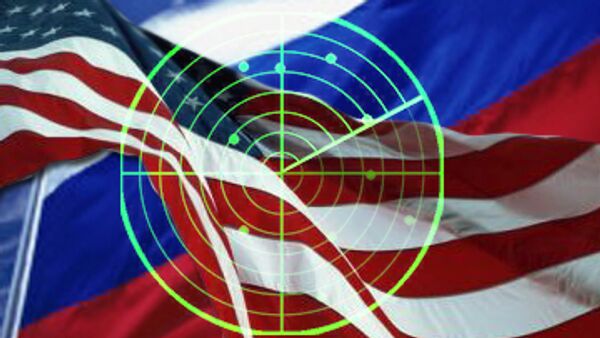MOSCOW (Roland Oliphant, Russia Profile)
With very carefully chosen words, U.S. President Barack Obama on Thursday announced his administration’s decision to change U.S. missile defense policy. Instead of building a land-based anti-ICBM system in Central Europe, a sea-and-land-based system designed to counter short and medium-range missiles will be positioned further south, closer to Iran. Though he barely mentioned it, the policy shift also removed the greatest single thorn in the side of U.S.-Russian relations.
Whether Bold Move or Disastrous Climb Down, Obama’s Olive Branch is Unlikely to Elicit a Reciprocal Concession
The news threw the Russian and international press into a frenzy, for experts it was long expected. Several Russia watchers have in recent weeks mentioned that the American administration was considering putting a halt to the missile defense plans, which had been pushed vigorously by the previous administration.
The Bush administration always argued that the proposed radar in the Czech republic and interceptor missiles in Poland were need to guard against the threat of long-range missiles, possibly carrying nuclear warheads, being fired from Iran. And, according to the Wall Street Journal article that broke the story, Obama’s decision to “shelve” the plans was to be justified on the grounds that “Iran’s long-range missile program has not progressed as previously estimated.” Relations with the Russia were not to be mentioned, or at least as little s possible.
As expected, when President Obama spoke to the press on Thursday evening Moscow time, he did not speak about shelving or abandoning anything, but adopting a “new missile defense program,” based on “proven and cost effective technology” that will “better counter the current threat.” It was, he said, “more extensive” than the previous program involving the Czech Republic and Poland.
And, to be fair, there is something to that. Experts have been expecting this announcement for some time, for two reasons, and neither involves Russia. Firstly, the project would be hugely expensive, and demanded a very long term commitment of resources for development. “A workable missile defense system does not yet exist,” said Fyodor Lukyanov, editor in chief of the foreign policy journal Russia in Global Affairs. “To take political risks for a system that does not exist so far was probably not seen as the best way forward.”
Secondly, regardless or costs and development, the strategic value of the project was always questionable. “It wouldn’t cover the whole territory of Europe, and even from the American point of view the location was not ideal,” said Oksana Antonenko of the International Institute for Strategic Studies. According to Antonenko, the strategic debate has already shifted to installing systems closer to Iran. “Israel, or possibly Turkey …there are areas where missile systems with existing capabilities would make more sense.”
But appeasing – or at least pleasing – Russia will not have been absent from the calculations in Washington, though it is an aspect the Obama administration will be keen to play down. “I can imagine that the main line of criticism against Obama’s decision will be that he demonstrated and gave up to Russian expansionism and abandoned allies like Poland and the Czech Republic,” said Lukyanov.
But in Russia it may not be seen as a “concession” so much as a return to “common sense,” which according to Antonenko, is exactly what Russian Foreign Minister Sergei Lavrov told an audience at the Valdai Club of Russia experts last week. “The attitude is, ‘well, you know you made a mistake, now you are putting it right,’” she said.
The danger of that is that the two sides could “into the same trap as in 2001, but in reverse,” said Lyukanov, referring to Russia’s offering America access to Central Asia, and the United States’ subsequent failure to offer a quid-pro-quo. “Then-President Vladimir Putin thought that was a great concession and a very serious gesture, whereas the feeling in America was that the Russians were not doing anything that was not in their own national interests,” recalled Lyukanov. That misunderstanding is said to have caused serious disappointment in the Kremlin, and to have contributed to Putin’s more confrontational attitude to the United States later in his presidency.
It would be naïve to expect a direct quid-pro-quo, and the one area where the Americans have the greatest hope of reciprocation – Iran – is unlikely to yield much. Although Russia certainly recognizes that a nuclear armed Iran would change the strategic balance in the Middle East, and to an extent even in Central Asia, a region of far greater importance for Russia, it does not see the risk in quite the same terms. Certainly, the Kremlin does not consider the prospect of a nuclear Iran to be as disastrous as Israel or the United States do. And besides, Russia has always explicitly refused to link the missile shield with the Iranian issue.
“From the Russian point of view those interceptors in Poland and the radar in the Czech Republic were only artificially connected with Iran, but in fact aimed at Russia,” said Lyukanov.
And that is really the whole problem of U.S.-Russian relations. Dealing with the give-and-take of Cold-War era issues like arms control and missile defense is relatively straight forward compared to the fiddly business of balancing the two powers’ foreign policy priorities in the modern world. “U.S. Russian relations can get better, but only if we talk about common interests,” said Lyukanov. “The thing is, when America’s priority is Iran, and Russia’s is Ukraine, common interests can be tricky to find.”
This comment first appeared on RussiaProfile.org

